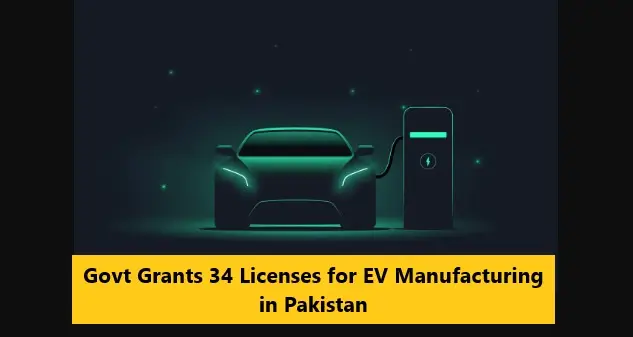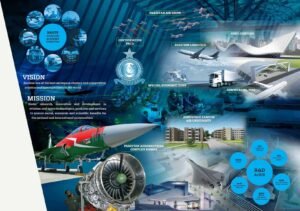Govt Grants 34 Licenses for EV Manufacturing in Pakistan.
Pakistan Gears Up for Electric Vehicles: Challenges and Opportunities
The Pakistani government is pushing for a transition towards electric vehicles (EVs) but faces hurdles in financing and infrastructure development.
Read More: Vlektra Electric Now Available With New Installment Plans
Here’s a breakdown of the key takeaways from a webinar on Pakistan’s EV market potential:
Government Initiatives:
- The Ministry of Industries and Production has issued licenses to 34 companies for manufacturing electric two- and three-wheelers.
- A proposal is in place to establish charging stations at every gas station.
- The government is collaborating with institutions like LUMS for EV adoption strategies.
Challenges:
- Financing: The high upfront cost of EVs due to batteries is a major barrier for consumers.
- Policy Framework: A more comprehensive and sustainable policy framework is needed to attract investment and streamline implementation.
- Infrastructure: Developing a robust EV charging network across the country is crucial.
- Research & Development: Investment in battery technology and related resources is necessary.
Opportunities:
- Global Funding: Pakistan can access international funding for EVs by aligning its transition with greenhouse gas (GHG) reduction goals.
- Private Sector Collaboration: Collaboration between government and private entities is essential for successful implementation.
- Local Manufacturing: Investing in local EV and battery component production can create jobs and reduce reliance on imports.
- Climate Finance: Pakistan can explore options like Just Energy Transition Partnerships for financing the transition.
Expert Opinions:
- Dr. Naveed Arshad (LUMS) suggests focusing on linking EV adoption with GHG reduction for easier access to global climate finance.
- Ahmed Sajeel (Deewan Motors BMW) emphasizes the need for a clear policy framework and local manufacturing to avoid delays.
- Midhat Waris (Shell Global) highlights the company’s experience with EV charging infrastructure and its partnership with K-Electric in Pakistan.
- Dr. Aazir Anwar Khan emphasizes the impact of EVs on air quality and the need for private funding for infrastructure development.
- Abdul Hadi (EV conversion company) stresses the importance of local battery development and a more effective EV policy.
- Malik Arsalan advocates for improved capacity to access climate financing and public-private partnerships (PPPs).
- Dr. Khalid Waleed suggests exploring hybrid EVs as a potential solution and fostering a regulatory environment that supports local manufacturing.
Overall, Pakistan has the potential to become a significant player in the EV market. By addressing challenges and capitalizing on opportunities, the country can achieve a cleaner transportation sector and a more sustainable future.
Note: The information above might not be accepted 100%. Please verify from your own sources. We will not be responsible for any kind of loss due to our content.
For more news, please visit Munafa Marketing.




